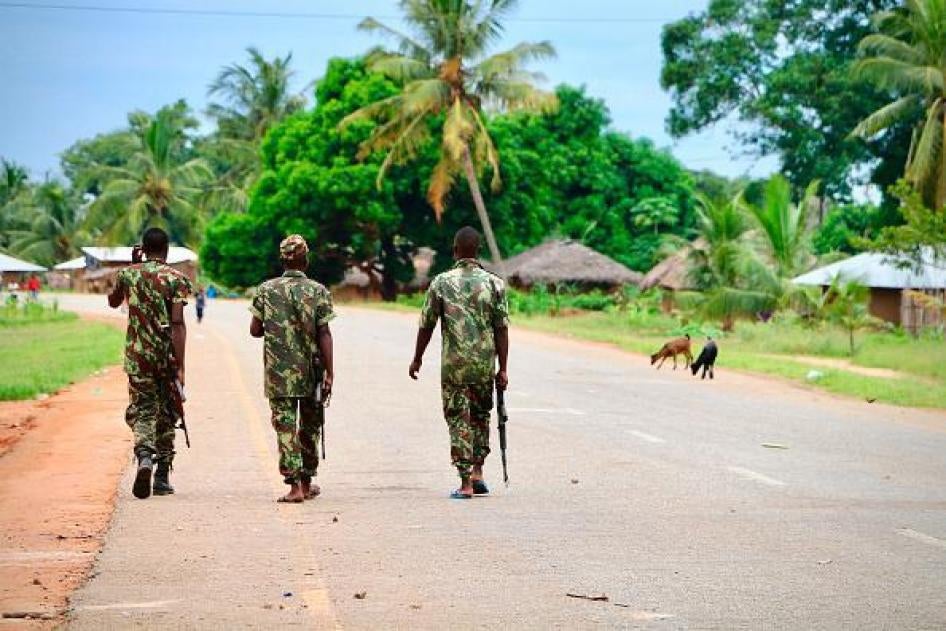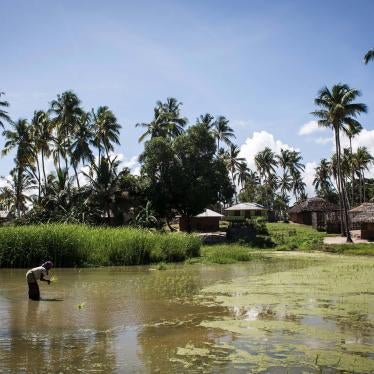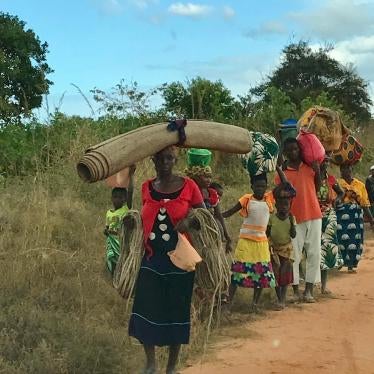Hundreds of people remain missing five days after an Islamic State (ISIS)-linked armed group known as Al-Shabab raided the town of Palma in Mozambique’s northern Cabo Delgado province, killing and wounding an unknown number of civilians and causing thousands to flee.
On Sunday evening, the government gave only its second update since the March 24 attacks, but added few details. The Defense Ministry spokesman, who took no questions from reporters, said security forces were committed to clearing areas around Palma to ensure the local population’s safe return. But little information was provided about the whereabouts of the natural gas-rich town’s residents, many of whom evacuated by boat from the town’s port.
Dozens of civilians were killed when the armed Islamist group raided the town and fired on people and buildings. Seven more people were killed in an ambush on a convoy of vehicles as it attempted to leave the town, the government said.
Media reports and witnesses said bodies, some of them beheaded, were lying on the streets and beaches of Palma. Phone lines to Palma have been down, making it hard to obtain information.
Local authorities and private oil companies, such as the French multinational Total, have rescued over 1,300 people who arrived by boat in Pemba port on Sunday morning. The authorities were not allowing journalists to speak with evacuees, most of them workers from oil companies operating in Palma.
Outside the port in Pemba, dozens of people were desperately waiting to see if friends and family members had made it onto rescue boats from Palma. A woman told local STV news that most of her family members lived in Palma and she had not heard from them since Wednesday. “I am not waiting for one or two persons. … I am waiting for many, many people, my entire family,” she said before accusing the government of failing to provide clear information about events in Palma.
The Mozambican authorities need to be more forthcoming about ongoing violence in Palma, and Cabo Delgado province more generally, and the actions they are taking to keep civilians safe and protect their human rights. Greater transparency is needed to avoid placing civilians at unnecessary risk and help the families of the victims of heinous attacks.










